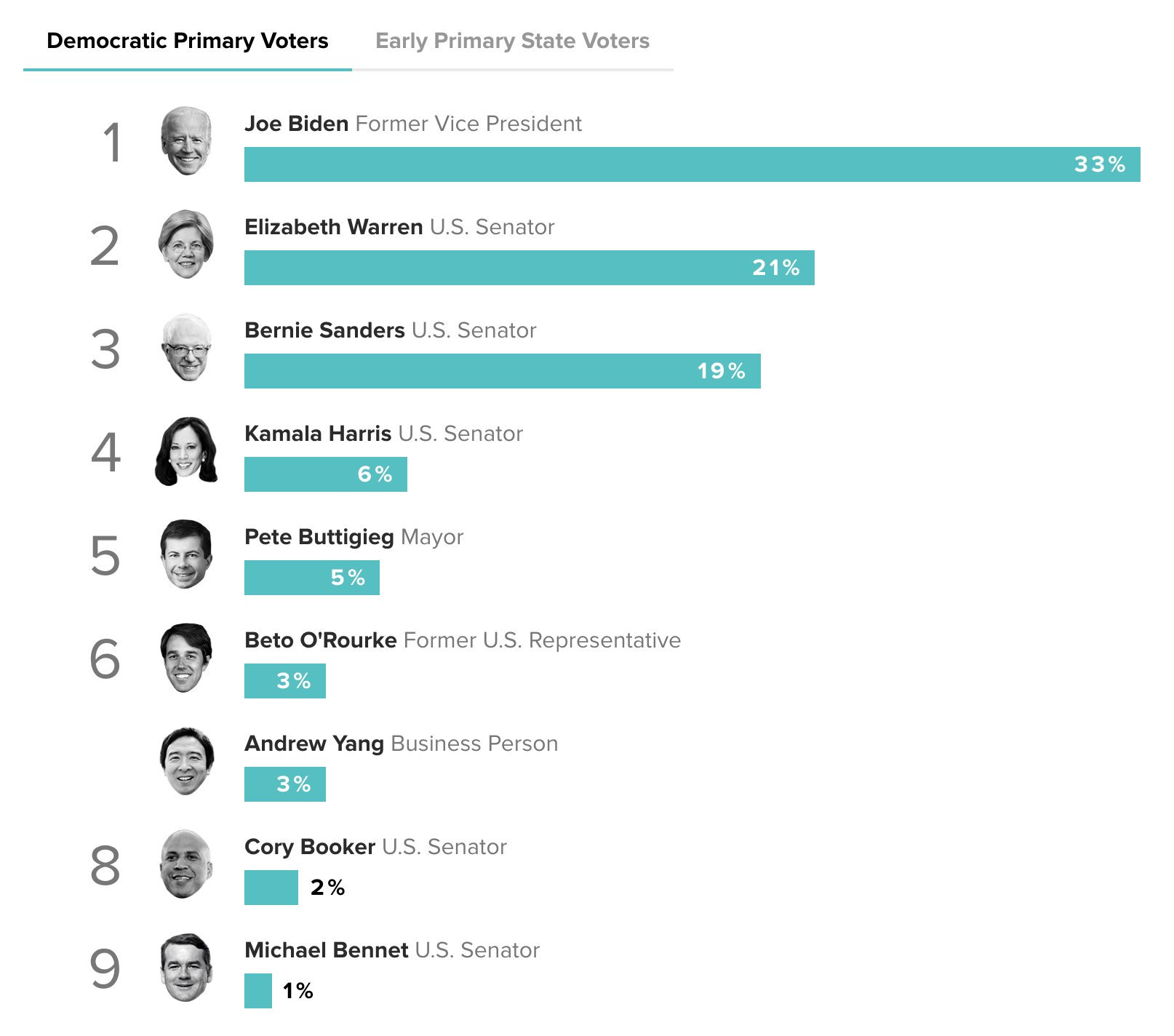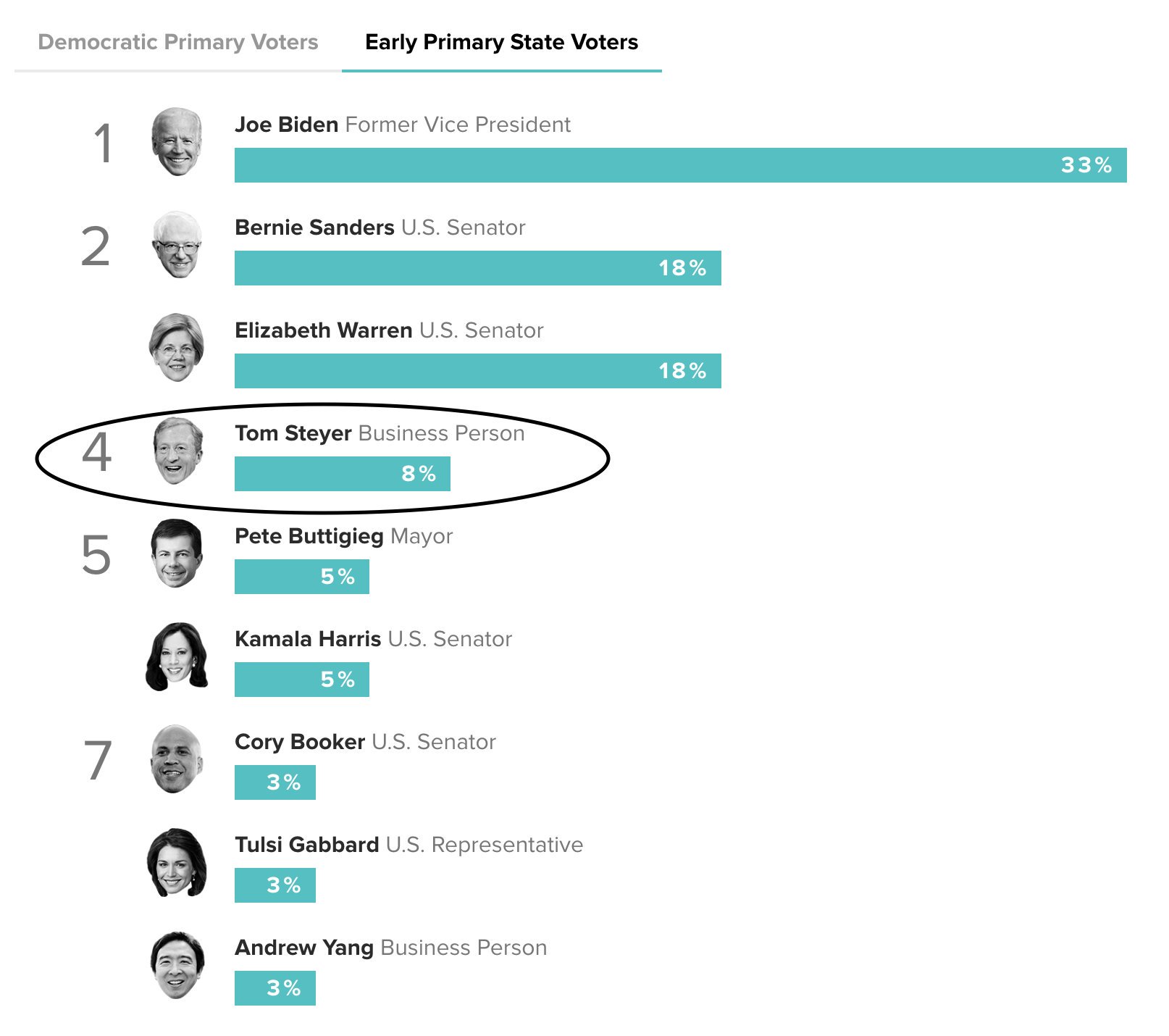Epistemic status: speculative
Andrew Yang understands AI X-risk. Tom Steyer has spent $7 million on adds in early primary states, and it has had a big effect:


If a candidate gets more than 15% of the vote in Iowa (in any given caucus), they get delegates. Doing that consistently in many caucuses would be an important milestone for outsider-candidates. And I'm probably biased because I think many of his policies are correct, but I think that if Andrew Yang just becomes mainstream, and accepted by some "sensible people" after some early primaries, there's a decent chance he would win the primary. (And I think he has at least a 50% chance of beating Trump). It also seems surprisingly easy to have an outsize influence in the money-in-politics landscape. Peter Thiel's early investment in Trump looks brilliant today (at accomplishing the terrible goal of installing a protectionist).
From an AI policy standpoint, having the leader of the free world on board would be big. This opportunity is potentially one that makes AI policy money constrained rather than talent constrained for the moment.

So Sorry for replying so late - I've been caught up with life/ exams.
Yes, sorry I did misrepresent you by thinking you relied heavily on r/neoliberal.
From digging around I totally understand and sympathise with why you chose to rely on partly on r/neoliberal - There are surprisingly few places where ecomonic discussion is occuring on the primary election where it is accessible to non-economists. But nonetheless they are a subreddit.
In a lot of your analysis though, you do seem to caricature Keynesian economics as non-mainstream. Is that ... true? I don't think this is at all correct. Isn't Keynesian economics the backbone of mainstream economics alongside neoclassical economics?
I have some other points, I will try run them by you later.
Can I say one thing, Thank You for championing Onedrive. MY God, I am so sick to death of Google Drive. It is a blight upon our species. HAHA